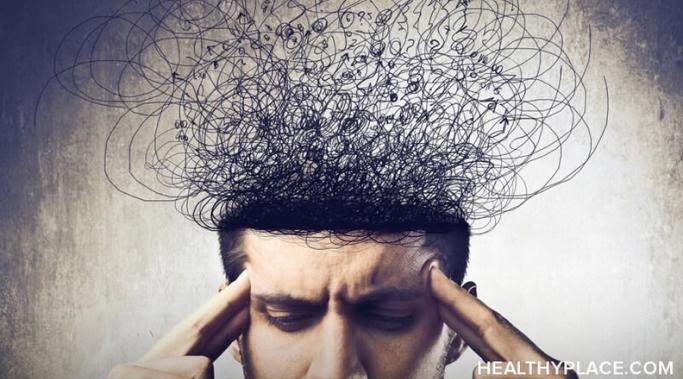When I’m depressed I can’t make decisions because everything feels “wrong.” I know that’s really vague but that’s how it feels. If feels like doing thing A is wrong but so is doing thing B. Doing something feels wrong and so does doing nothing. When I’m actually doing something, it feels like I should be doing something else, something more. When I’m depressed it feels like every decision is the wrong decision, every move is the wrong move. Depression makes me not able to make a decision.
Breaking Bipolar
People want to know what to do when they’re hypomanic from bipolar. Should you stay in hypomania as long as possible if you enjoy it? Should you try to moderate it in some way? Should you try to end the bipolar hypomania as quickly as possible? People will have different thoughts on this one but here are my thoughts on what to do when you’re hypomanic because of bipolar.
I’ve learned, over a lot of time spent depressed, that you have to celebrate the small wins in bipolar depression. It’s absolutely crucial. You absolutely must recognize the little things if you have even half a hope of feeling better. You have to congratulate yourself for getting up, getting dressed, taking a shower and doing other impossible tasks when you have bipolar depression. Celebrating the small wins in bipolar depression sustains you while the big wins are on their way.
I have major guilt when my bipolar interferes with work. I have this thing where I think that bipolar is just an excuse for laziness and that if I was a just a better person bipolar wouldn’t interfere with my work. Even though I know this isn’t true, it seems to be the only thing I think about when bipolar rears its ugly head and deleteriously affects my work.
I hear from many people who are suicidal and these people give many reasons for suicide; but these reasons for suicide are typically lies from their brains called cognitive distortions. For example, one lie might be the idea that everyone is a selfish liar, or, put more simply, everyone is “bad” and the suicidal person cannot live in a world where everyone is bad. I think it’s really important to address this because, certainly, if you really did think everyone was selfish or everyone was a liar then being suicidal would be much more natural. But the fact Is, this (and other) reasons for suicide are false.
Maybe it’s just me, but I find the bipolar depression after a hypomania to be much worse than your average, daily depression. Post-hypomania depression is the way you pay for a hypomania (at least for me) and hypomania is very, very expensive.
The antidepressant black box warning was issued to reduce suicide in youth but has the antidepressant black box warning actually increased suicides?
In 2004, the Food and Drug Administration (FDA) issued a black box warning (the most serious type of warning) on antidepressants advising of the risk of suicide in children taking antidepressants. In 2006, the FDA expanded this warning to include youth under the age of 24. The goal of these black box warnings was to reduce suicides in these populations. Unfortunately, the antidepressant black box warnings appear to have had unintended consequences. The antidepressant black box warnings appear to have actually increased the rate of suicide.
There are a significant number of people diagnosed with depression who don’t get better because they actually have bipolar disorder and have been misdiagnosed or have a mild form of bipolar. I was one of those people. Luckily for me, it only took about 6-9 months to correct the misdiagnosis but for many people, it takes much, much longer. Many people sit with a misdiagnosis of depression for, literally, years. And what doctors (and patients) should be thinking about is if a patient has been diagnosed with depression but isn’t getting better, does he or she really have mild bipolar disorder?
When working with bipolar, there are definite dos and don’ts. These dos and don’ts can help predict just how successful you can be with bipolar at work because you can work with bipolar but that’s a much easier goal to achieve if you keep certain rules in mind (Keeping a Job When You Have Bipolar Disorder).
Do you know how the United States treats psychosis -- a condition that affects millions of Americans? I am not an expert in psychosis, nor have I, personally, experienced psychosis, but one thing I’m pretty sure about is how the United States treats psychosis is all wrong.









